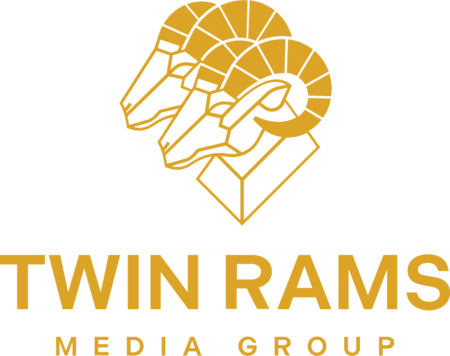Search engine optimization, or SEO, can be less complicated and less daunting for marketing beginners, business professionals, and solo entrepreneurs if you know how to classify it. SEO efforts in digital marketing can be categorized into on-page and off-page SEO—both equally crucial and beneficial to businesses and professionals. Learn the difference between on-page vs. off-page SEO, their components, the techniques used, and their importance.
What are On-page and Off-page SEO?
On-page and off-page SEO are two fundamental aspects of search engine optimization (SEO). These two collectively work together to improve a website’s visibility in search engine results pages (SERPs) and increase its chances of ranking higher for relevant keywords. They also help improve the quality of the website and its overall relevance when it comes to digital marketing.
So what are the differences between on-page vs. off-page SEO? Well, these two SEO components focus on different aspects of website optimization.
On-page SEO (or onsite SEO) refers to the strategies and techniques used to optimize individual web pages on your own website. It involves making improvements directly to the website pages themselves to ensure that search engines can understand the content and rank it appropriately in the search results. Some of the essential on-page SEO factors include headings, title tags, URL structures, visual assets, and more.
Off-page SEO, on the other hand, focuses on factors and strategies that occur outside of your website. This is to build your website’s or your brand’s authority, credibility, and trustworthiness in the eyes of search engines and users themselves. Some of the key components of off-page SEO include backlinks, social media pages, brand mentions, outreach, and more.
On-page and off-page SEO should work together to build a trustworthy website with good, relevant traffic, and better search results ranking.
What is the on-page and off-page SEO checklist?
Both on-page and off-page SEO have their own factors or key components that strengthen SEO efforts altogether. The more marketers, entrepreneurs, and business professionals focus their attention on these factors and tick boxes off each checklist, the more they can harness the potential of on-page and off-page SEO.
Here are some helpful checklists to consider:
On-page SEO Checklist
- High-quality content: Create high-quality, relevant, and informative content that is valuable to users and incorporates target keywords.
- Relevant keywords: Research relevant keywords (search terms) and strategically place them within the content, meta tags, headings, and URLs to match user search queries.
- Title tags and meta descriptions: Craft compelling and keyword-rich title tags and meta descriptions for each page to improve click-through rates and provide concise descriptions of the page’s content.
- URL structure: Make sure to create clean and descriptive URLs for pages that include keywords when possible.
- Header tags (H1, H2, H3, etc.): Use header tags to structure content logically and provide hierarchy, which will make it easier for search engines to understand the page’s topic.
- Relevant internal links: Remember to link to other relevant pages within your website to improve navigation and help search engines understand the site’s structure and hierarchy.
- Mobile-friendliness: Ensure that your website is responsive and accessible on various devices, including mobile phones and tablets, to improve the user experience and traffic.
- Page speed: Optimize page load times to enhance the user experience and satisfy search engine ranking factors.
- Images or other visuals: Adding images, presentations, or videos to website pages also matters. Compress and properly label images with alt tags to make them more accessible and improve page load times.
Off-page SEO Checklist
- Quality backlinks: Acquire high-quality, relevant backlinks from other reputable websites. These links act as votes of confidence in your site’s content and can positively impact your search rankings.
- Social signals or social media presence: Build a strong presence on relevant social media platforms and encourage social sharing of your content. These can indirectly influence search engine rankings.
- Social bookmarks: Use social bookmarking sites to boost your domain authority. Social bookmarks promote content and increase traffic to a website, increasing a website’s visibility and search engine rankings.
- Online reputation: Monitoring and managing your online reputation is also a must. This includes reviews and mentions on review sites, forums, social media, and more.
- Influencer collaborations: Collaborate with industry influencers and thought leaders to promote your content and gain exposure.
- Guest blog posts: Write informative and valuable guest posts for other websites in your industry, typically with a link back to your own site.
- Brand mentions: Monitor and capitalize on brand mentions across the web, even if they don’t include a direct link to your site.
Why are on-page and off-page SEO important?
On-page and off-page SEO are crucial in digital marketing for several reasons. When combined effectively, they can significantly impact a website’s visibility, credibility, and success in search engine rankings. Here are the key reasons why both on-page and off-page SEO are important, especially for brands and businesses:
Search Engine Visibility
Search engines use complex algorithms to determine the relevance and quality of web pages. On-page SEO helps you optimize your content and structure so that search engines can easily understand and index your site. Off-page SEO, through factors like backlinks and social signals, demonstrates to search engines that other websites trust and endorse your content, which increases your site’s visibility in search results.
Higher Rankings
When you optimize your web pages with on-page SEO techniques, such as keyword optimization, meta tags, and quality content marketing, you’re more likely to rank higher for specific keywords and phrases that are relevant to your business. Off-page SEO, particularly through acquiring high-quality backlinks, helps improve your site’s authority and, in turn, its search engine rankings.
Credibility and Trust
Both on-page and off-page SEO contribute to building your website’s credibility and trustworthiness. On-page optimization ensures that your content is valuable, accurate, and user-friendly, which builds trust with visitors. Off-page SEO, particularly through reputable backlinks and positive online brand reputation management, enhances your site’s credibility in the eyes of both users and search engines.
User Experience
On-page SEO, including elements like page speed optimization, mobile-friendliness, and content quality, directly impacts the user experience. A positive user experience not only leads to higher search engine rankings but also keeps visitors engaged and encourages them to explore your site further. Good user experience also leads to higher traffic and better lead generation.
Traffic Generation
SEO is a powerful source of organic traffic. By optimizing your pages for relevant keywords and attracting backlinks, you can increase the number of visitors to your site without relying solely on paid advertising and paid strategies.
Competitive Advantage
Effective on-page and off-page SEO can give you a competitive edge in your industry. When your website consistently ranks higher and has a strong online presence, you’re more likely to attract potential customers and outperform competitors who may not be as well-optimized.
Adaptation to Search Engine Updates
Search engines regularly update their algorithms to provide better results to users. A strong foundation in both on-page and off-page SEO makes it easier to adapt to these frequent changes and rank well.
Long-Term Benefits
Unlike some short-term marketing strategies, the effects of good SEO can be long-lasting. Once you’ve achieved strong rankings and built a solid online reputation, maintaining them requires ongoing effort but can yield sustainable results over time.
In summary, on-page and off-page SEO are essential because they work together to improve your digital marketing, including visibility, credibility, audience perception, and user experience. When done properly, they can drive organic traffic, increase rankings, and ultimately help your website achieve its goals. Whether that’s generating leads, making sales, or providing valuable information to your audience.
What techniques are used in on-page vs. off-page SEO?
There are a lot of techniques involved in both on-page and off-page SEO. Familiarizing yourself with and practicing these techniques can help enhance your overall digital marketing efforts and boost your website in search engines. Take a look at these techniques below:
On-page SEO Techniques and Strategies
- Keyword Research: Identify relevant keywords and phrases that your target audience is likely to search for. Tools like Google Keyword Planner and SEMrush can help with this research.
- Content Writing and Optimization:
- High-Quality Content: Create informative, engaging, and valuable content that satisfies user intent and provides answers to their queries.
- Keyword Placement: Incorporate your target keywords naturally into your content, including the title, headings, body, and meta tags.
- Content-Length: Longer, comprehensive content often performs better in search results.
- Internal and External Linking: Link to other relevant pages within your website and other reputable sources to improve navigation and create a logical hierarchy.
- Creating Meta Tags:
- Title Tags: Craft descriptive, keyword-rich titles (under 70 characters) for each page.
- Meta Descriptions: Write compelling, concise meta descriptions (under 160 characters) that summarize the page’s content and include keywords.
- Crafting URL Structure: Create clean and descriptive URLs that include keywords when appropriate.
- Header Tags Optimization: Use header tags (H1, H2, H3, etc.) to structure your content logically and make it easier for both users and search engines to understand.
- Mobile Optimization: Ensure that your website is responsive and mobile-friendly for users on smartphones and tablets.
- Page Speed Optimization: Improve page load times by optimizing images, using browser caching, and minimizing code.
- Image Optimization: Compress images, use descriptive file names, and add alt tags to images for better accessibility and SEO.
- Schema Markup: Implement structured data markup (Schema.org) to provide search engines with more information about your content, which can lead to rich snippets in search results.
Off-page SEO Techniques and Strategies
- Link Building:
- Guest Blogging: Contribute high-quality guest posts to authoritative websites in your niche, typically with a backlink to your site.
- Outreach: Reach out to relevant websites and request backlinks or collaborations.
- Content Promotion: Share your content on social media and other platforms to attract natural backlinks.
- Social Media Marketing and Engagement: Maintain an active presence on social media platforms. Familiarize yourself and your team with the social media do’s and don’ts. Encourage social sharing of your content by adding social sharing buttons to your website.
- Social Listening and Online Reputation Management: Monitor and manage online reviews, ratings, and comments. Respond to user feedback, both positive and negative, to demonstrate engagement and care.
- Influencer Outreach and Marketing: Reach out to industry influencers and thought leaders, and collaborate with them to promote your content or products or services.
- Brand Mentions: Monitor and capitalize on unlinked mentions of your brand across online spaces. These can still serve as citations that will help boost your site’s authority and trust.
- Content Promotion, Repurposing, and Distribution: Promote your content through email marketing, social media, and outreach to increase its visibility and attract backlinks. You can also repurpose your content to be distributed by other means to create new backlinks and reach new audiences.
- Local SEO (for local businesses): Create and optimize your Google My Business listing. Encourage and respond to customer reviews on Google and other local directories.
- Community Engagement: Participate in online forums, communities, and discussion platforms related to your industry to establish your expertise and gain visibility.
- Article and Blog Directory Submissions: Submit blogs or articles to online blog directories or blog listing websites. Blog directory submissions boost exposure and improve search engine ranking.
At the end of the day, both on-page and off-page SEO require ongoing efforts and a strategic approach. Continuous monitoring, analysis, and adaptation to changing algorithms and trends are essential to maintaining and improving your website’s search engine rankings and online presence.
Need extra help with your on-page vs. off-page SEO efforts? Let Twin Rams Media experts take a look at your website and help! Contact us today to get started.
References:
https://www.woorank.com/en/blog/on-page-vs-off-page-seo-whats-the-difference
https://ahrefs.com/blog/on-page-vs-off-page-seo/
https://www.geeksforgeeks.org/difference-between-on-page-and-off-page-seo/


